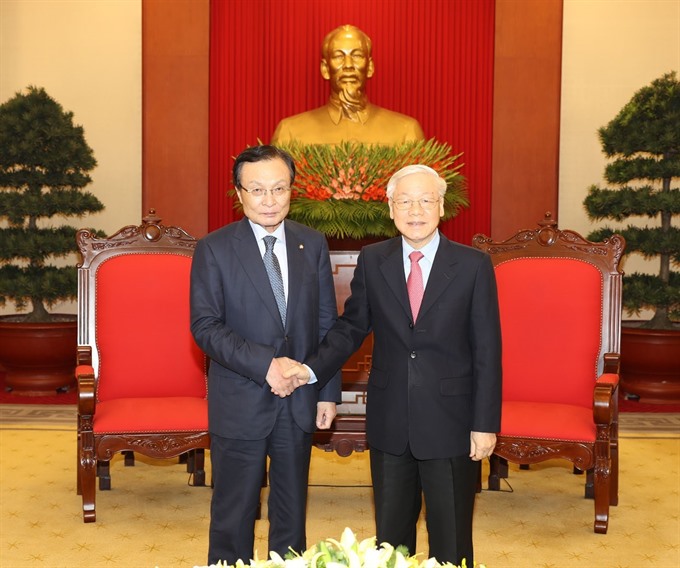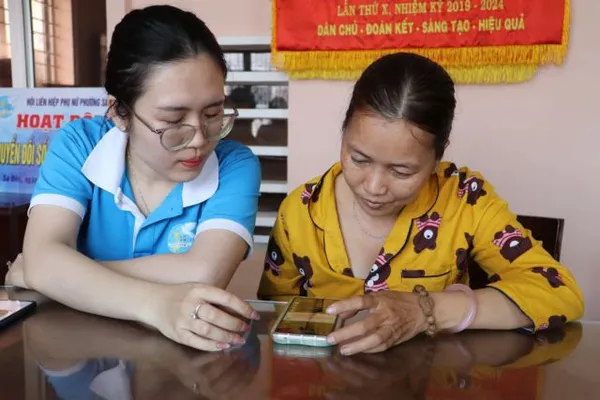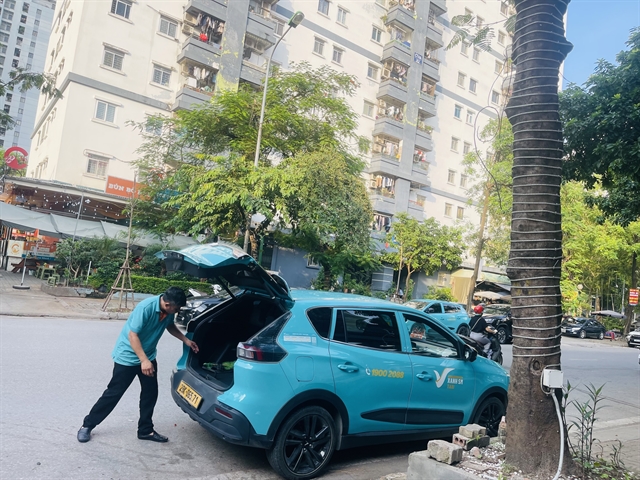 Politics & Law
Politics & Law

The Democratic Party of Korea (DPK) wants to strengthen its friendship and co-operation with the Communist Party of Việt Nam (CPV), helping to push the Việt Nam-Republic of Korea (RoK) relations to a new height, said DPK Chairman Lee Hae-chan.
 |
| General Secretary of the Communist Party of Việt Nam and President Nguyễn Phú Trọng met with Democratic Party of Korea’s Chairman Lee Hae-chan in Hà Nội on March 26. — VNA/VNS Photo Trí Dũng |
HÀ NỘI — The Democratic Party of Korea (DPK) wants to strengthen its friendship and co-operation with the Communist Party of Việt Nam (CPV), helping to push the Việt Nam-Republic of Korea (RoK) relations to a new height, said DPK Chairman Lee Hae-chan.
The DPK leader made the statement at a meeting with General Secretary of the Communist Party of Việt Nam and President Nguyễn Phú Trọng in Hà Nội on March 26.
Lee said he was impressed with Việt Nam’s rapid changes and development. He briefed on the RoK’s socio-economic situation as well as the DPK’s policy on foreign affairs and national development.
For his part, Trọng stressed that Lee’s ongoing visit was an opportunity for leaders of the two parties to meet and enhance mutual understanding and trust.
He applauded the signing of a memorandum of understanding (MoU) on boosting cooperation between the CPV and the DPK.
The leader urged both sides to work closely together to realise the pact, which would contribute to consolidating the bilateral friendship and deepening the Viet Nam-RoK strategic partnership.
More investment
Earlier the same day, Prime Minister Nguyễn Xuân Phúc hosted a reception for Lee and his entourage.
Phúc said Việt Nam-RoK relations were growing comprehensively in multiple fields.
The RoK is now the biggest foreign investor, second biggest ODA supplier, and third biggest trade partner of Việt Nam. The country also ranks second in terms of foreign tourist arrivals in Việt Nam.
The government leader asked the RoK side to continue creating favourable conditions for Vietnamese citizens living, working and studying in the RoK.
Lee vowed to join efforts made by the two countries and their party leaders in fortifying the bilateral ties. He hoped Việt Nam would continue facilitating RoK firms investing in the nation.
Recalling the many visits he had made to Việt Nam since his first trip in 1992 - the year the two countries officially established diplomatic ties, Lee Hae-chan said the bilateral relations, especially in terms of investment and economic cooperation, had flourished in recent times.
Lee said on the previous day, he visited Samsung factories in the northern province of Bắc Ninh and witnessed the successful operations of the global conglomerate there, which showcased the strong economic ties between the two countries.
Lee also expressed appreciation towards Việt Nam for meticulous preparations for and hosting of the second DPRK-USA Summit in Hà Nội in late February and wished Việt Nam would continue to support the denuclearisation process in the Korea Peninsula.
The RoK official also wished for stronger people-to-people exchanges between the two countries, given a robust community of 200,000 Vietnamese in RoK and 180,000 South Korean citizens living in Việt Nam.
Both leaders affirmed their determination to push Việt Nam-RoK trade to US$100 billion by 2020.
Also on March 26, Politburo member and permanent member of the CPV Central Committee’s Secretariat Trần Quốc Vượng held talks with DPK Chairman Lee Hae-chan.
At the talks, the two sides informed each other on the current situation of their respective nations and parties.
Vượng and Lee also exchanged their ideas on measures to enhance ties between the CPV and the DPK in the time ahead, as well as sharing information and their views on international and regional issues of common concern.
Following the talks, head of the CPV Central Committee’s Commission for External Relations Hoàng Bình Quân and Deputy General Secretary of the DPK Kim Kyung-hyup signed a memorandum of understanding (MoU) on boosting cooperation between the two parties. — VNS




